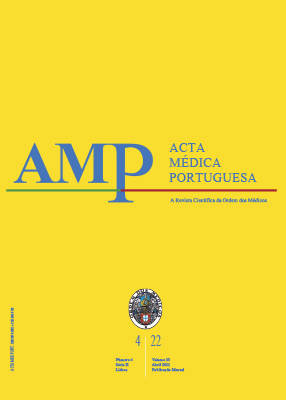Pharmacological Treatment of Alcohol Withdrawal
DOI:
https://doi.org/10.20344/amp.15799Keywords:
Alcohol Abstinence, Alcoholism/drug therapy, Substance Withdrawal SyndromeAbstract
Introduction: Excessive chronic alcohol users, and particularly patients with alcohol use disorder, may present an alcohol withdrawal syndrome if they abruptly stop drinking. Alcohol withdrawal syndrome requires pharmacological treatment for the treatment of withdrawal symptoms and to prevent withdrawal complications. Medically assisted withdrawal treatment is used in alcohol treatment units, but it is also frequently required in patients admitted to hospital for other conditions.
Methods: Review of major guidelines covering treatment of withdrawal syndrome with the aim to describe recent evidence and recommendations about the pharmacological treatment for alcohol withdrawal syndrome.
Results: Four major guidelines concerning treatment of withdrawal syndrome were selected (National Institute for Health and Care Excellence, American Society of Addiction Medicine, World Federation of Societies of Biological Psychiatry and American Psychiatric Association) and screened for the recommendations and level of evidence on drug prescribing for alcohol withdrawal syndrome. The Maudsley guidelines were also considered in this review.
Discussion: All the four reviewed guidelines recommended benzodiazepines as the first line treatment for alcohol withdrawal syndrome. The association of anticonvulsivants, adrenergic alpha-2 agonists, betablockers and antipsychotics with benzodiazepines is recommended for symptom reduction in severe alcohol withdrawal syndrome. Thiamine should be administered to all patients to prevent Wernicke-Korsakoff encephalopathy. If there is any electrolytic imbalance it should be corrected.
Conclusion: Maintaining a high level of suspicion for alcohol withdrawal syndrome is important across all clinical settings, and it should be promptly treated.
Downloads
Downloads
Published
How to Cite
Issue
Section
License
Copyright (c) 2021 Acta Médica Portuguesa

This work is licensed under a Creative Commons Attribution-NonCommercial 4.0 International License.
All the articles published in the AMP are open access and comply with the requirements of funding agencies or academic institutions. The AMP is governed by the terms of the Creative Commons ‘Attribution – Non-Commercial Use - (CC-BY-NC)’ license, regarding the use by third parties.
It is the author’s responsibility to obtain approval for the reproduction of figures, tables, etc. from other publications.
Upon acceptance of an article for publication, the authors will be asked to complete the ICMJE “Copyright Liability and Copyright Sharing Statement “(http://www.actamedicaportuguesa.com/info/AMP-NormasPublicacao.pdf) and the “Declaration of Potential Conflicts of Interest” (http:// www.icmje.org/conflicts-of-interest). An e-mail will be sent to the corresponding author to acknowledge receipt of the manuscript.
After publication, the authors are authorised to make their articles available in repositories of their institutions of origin, as long as they always mention where they were published and according to the Creative Commons license.









